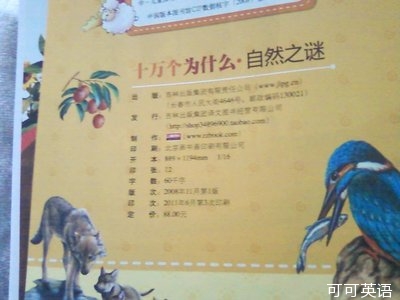句子:
The letter was an eye-opener: she wanted to divorce me!
誤譯:
這封信讓我大開眼界,她要同我離婚!

正譯:
這封信讓我大為驚訝,她居然要同我離婚!
翻譯加油站:
誤譯邏輯上顯然有問題,一個人的老婆要同自己離婚,怎么談得上會使他“開眼界”呢?不錯,eye-opener確實有“使人開闊眼界的事物”的意思,如:
The exhibits from the British Museum were real eye-opener to most visitors.
來自大英博物館的展品使大多數參觀者大開眼界。
事實上,eye-opener是一個中性的詞語,除了指令人恍然大悟的(新鮮或好)事物”,也可以指“令人驚訝的(壞)事物”,如:
The declassified wartime documents revealed many unthinkable atrocities committed by the Japanese aggressors and were an eye-opener to many penile.
解密的戰時文件揭露出日本侵略者犯下的許多讓人想象不到的暴行,令人震驚。
其實,英語里有許多中性的成語,翻譯成褒義還是貶義,一定要根據上下文決定,例如:
birds of a feather 興趣愛好相同的人/一丘之貉
enough to make the cat speak 絕妙的/非常糟糕的,以至于連貓都會驚訝得開口說話
full of ambition 有雄心壯志/野心勃勃的
hand in glove with 親密無比/狼狽為奸
take example by… 以……為榜樣/吸取……的教訓
eye-opener來自動詞短語open one’s eye,其本來意思是“使人睜大眼睛”,如:
When I told him so, he opened his eyes的意思并不是他張開原來閉著的眼睛,而是“驚訝得睜大眼睛”。叫人把眼睛睜大一點則要說 Open your eyes wider。而open someone's eyes to something的意思是“啟發某人認識某件亊”,如:
That incident opened my eyes to the true character of this young man.
這次亊件讓我認清了這位年輕人的真正品格。











